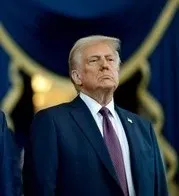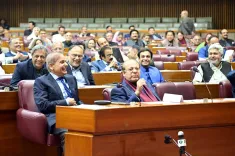Did the Trump Administration Really End the 'Quiet Skies' Passenger Surveillance Program?

Synopsis
In a bold move, the Trump administration has terminated the 'Quiet Skies' surveillance program that monitored passengers using undercover air marshals. The decision has raised many questions about the effectiveness and ethical implications of such surveillance. Dive into the details of this controversial program's closure and its impact on national security.
Key Takeaways
- The 'Quiet Skies' program has been officially discontinued.
- It cost taxpayers $200 million annually without preventing terrorism.
- There are ongoing concerns about civil liberties and political motivation.
- The program was initiated in 2010 and revealed to the public in 2018.
- Future aviation security strategies will need to be carefully balanced.
New York, June 7 (NationPress) The Trump administration has officially discontinued a controversial initiative that deployed undercover US air marshals on flights to monitor passengers. In a significant move, a government official responsible for including Director of National Intelligence Tulsi Gabbard in this program was also removed.
The closure was announced by Department of Homeland Security (DHS) Secretary Kristi Noem, who called for an investigation into the program, which has reportedly cost taxpayers $200 million annually and failed to prevent any terrorist attacks.
In a recent gathering, officials from the administration raised concerns with the leadership of the Transportation Security Administration, alleging that the use of the Quiet Skies program during the Biden administration was politically motivated, as reported by Xinhua news agency quoting The Wall Street Journal.
The ongoing dispute regarding Quiet Skies, a program that has sparked considerable concern among civil liberties advocates, exemplifies the Trump administration's accusations against career officials for political weaponization.
Initiated in 2010, the program's existence was first revealed by the Boston Globe in 2018. Undercover US air marshals were assigned to flights with individuals flagged by the program.
Quiet Skies is designed to target travelers who may pose an elevated risk to aviation safety. The initiative employs analysts and undercover air marshals to observe individuals in airports and on flights, utilizing outstanding warrants, facial recognition technology, identification of suspicious travel patterns, and other data to thwart potential terrorist plots.









